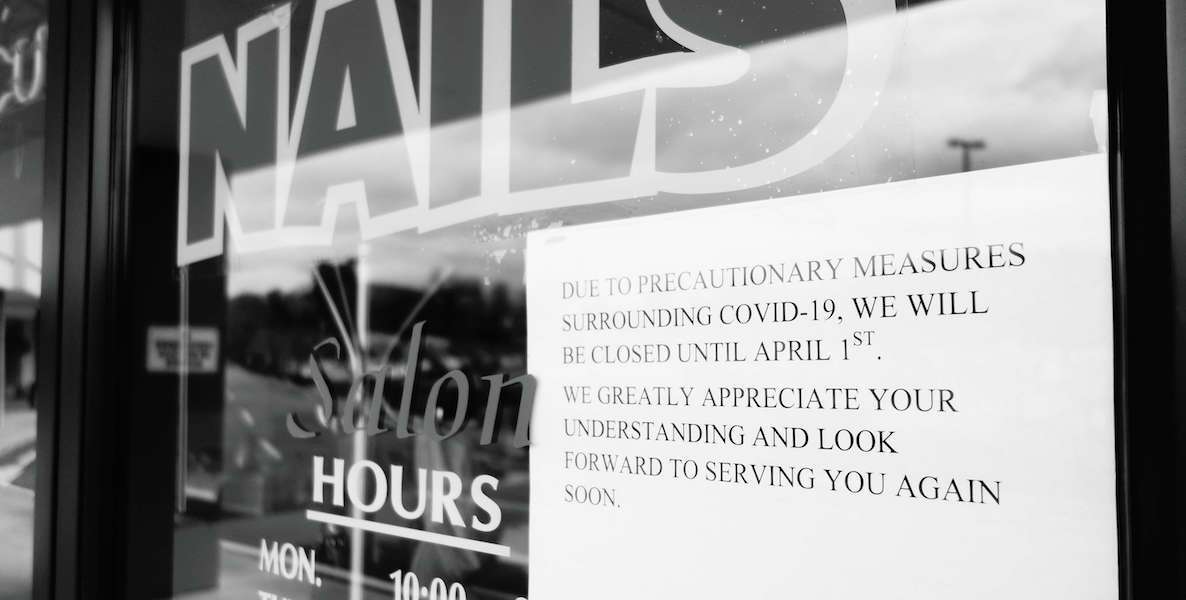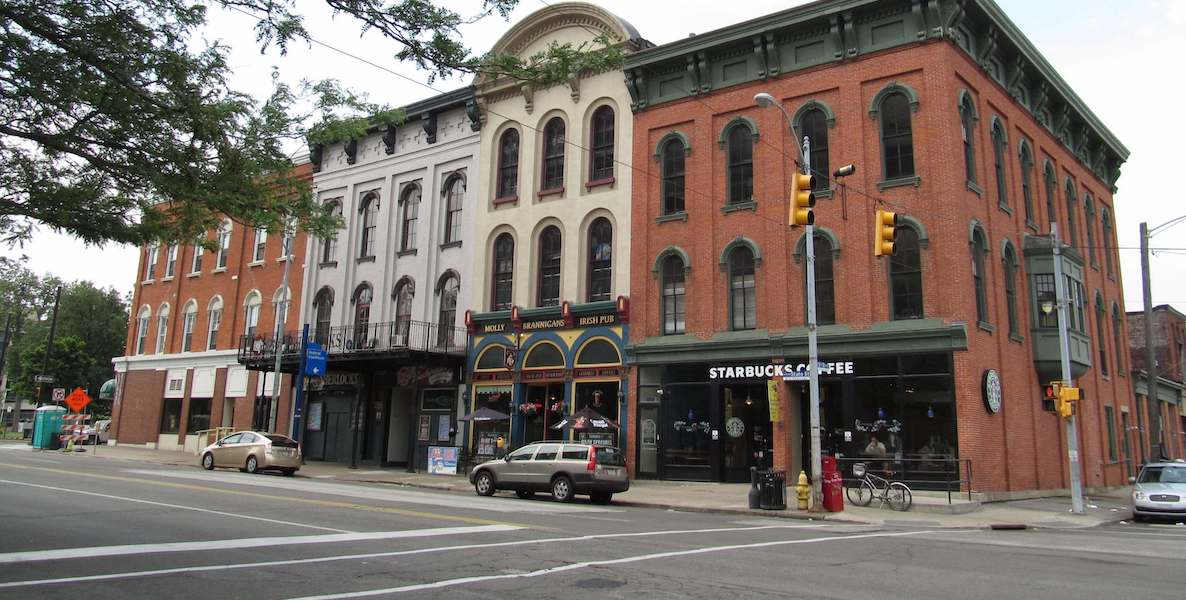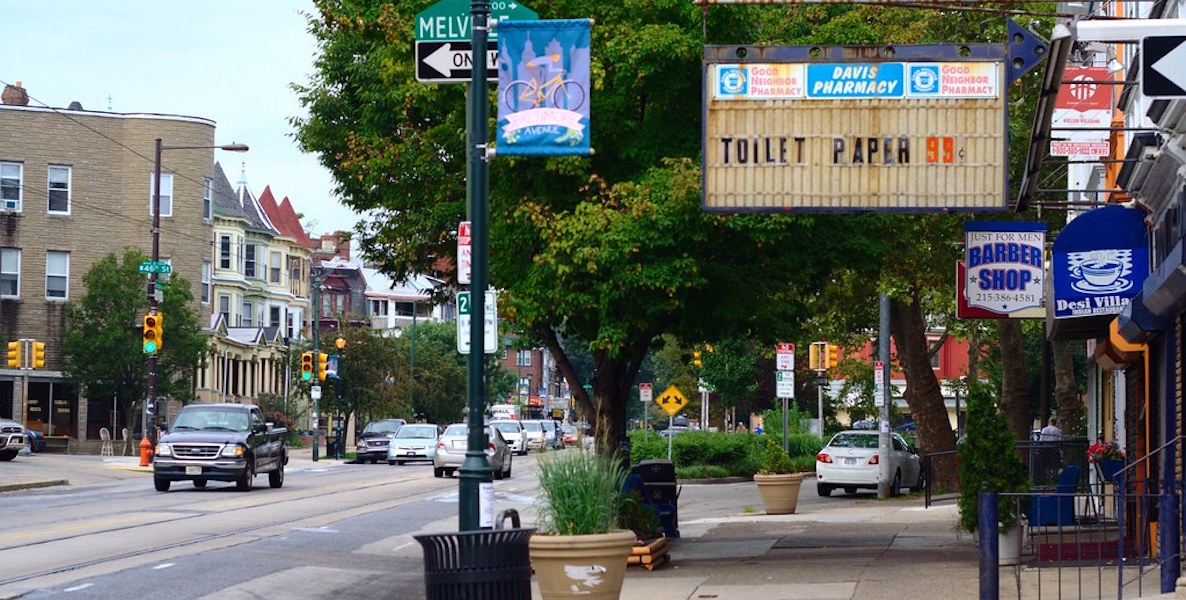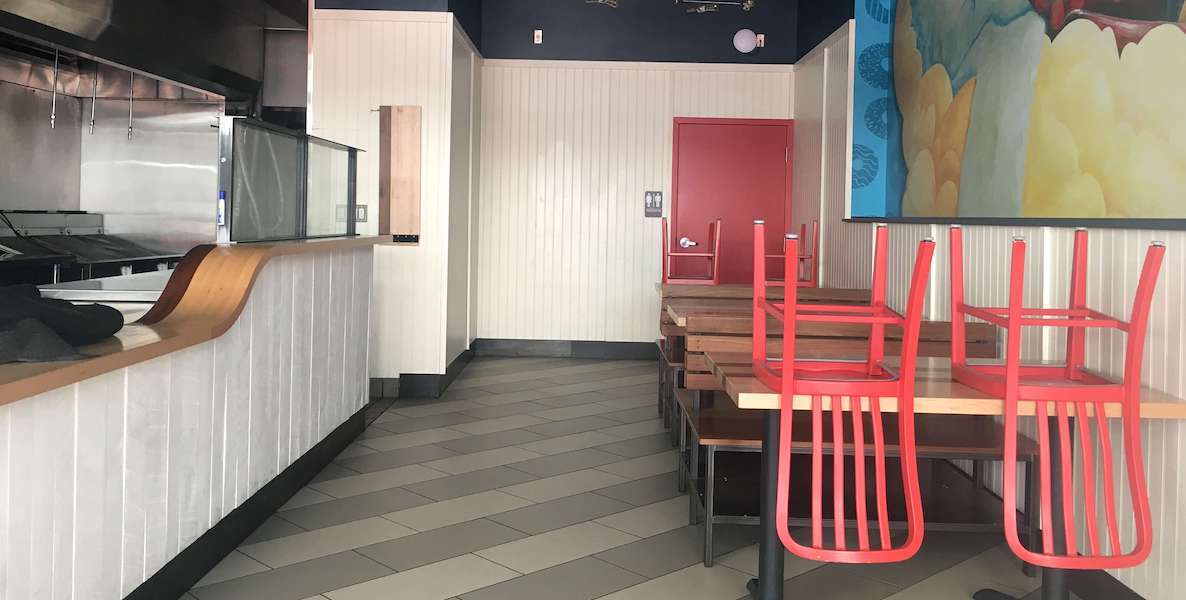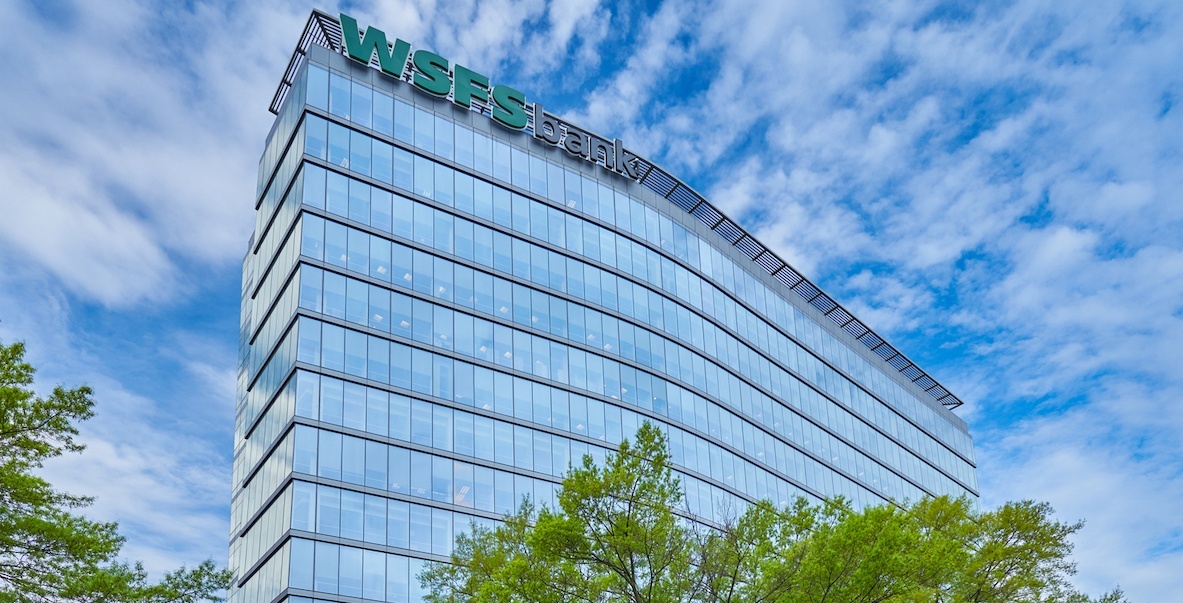The Covid-19 crisis is wreaking havoc on Main Street small businesses across the United States, where tens of thousands of small businesses have closed for the duration of the crisis.
The hardest hit are local face-to-face Main Street services—restaurants, bars, coffee shops, barbershops, hair salons, auto repair shops, dry cleaners and others that are living on the brink.
These entities—usually sole proprietorships or businesses with fewer than 25, 10 or even 5 employees—are running out of cash or already broke.
The stakes are enormously high. If small businesses cannot survive as a result of the economic shutdown, then the nation is looking at a slow, painful and highly uneven recovery.
As we described last week, Congress has enacted a suite of large relief programs in the CARES Act, most prominently a new ~$350 billion Small Business Administration Paycheck Protection Program (“PPP”); and a new Federal Reserve “Main Street” Business Lending Program. The CARES Act also authorized $10 billion in SBA’s existing economic injury disaster loan program.
These relief programs, and the financial institutions that largely distribute them, are shifting into high gear. At the time of writing this, Bank of America confirmed that it had received applications from 177,000 small businesses for a total of $32.6 billion in PPP financing. Wells Fargo said it was at capacity for its $10 billion PPP allotment. These are just two of the more than 1,200 active lenders participating.
Despite this commendable speed, all initial indications are that these programs are unlikely to serve a substantial part of the small business market, particularly underserved small businesses that are owned by persons of color and/or located in low- and moderate-income neighborhoods.
These enterprises do not have close ties to the mainstream banking system, are unlikely to tap the SBA relief programs and are in dire need of objective technical guidance and support.
The good news is that cities, counties, states and a group of alternative lenders have stepped into the breach and have created a parallel system for addressing the urgent needs of underserved small businesses that is providing a variety of grant and loan products that are fit to purpose.
These efforts have emerged as a critical lifeline for the most vulnerable small businesses, particularly neighborhood-serving businesses owned by people of color.
Despite playing this critical role, these local relief funds, and the community development financial institutions (CDFIs) that often distribute the resources have received minimal federal assistance to date, raising their capital from a broad mix of public, philanthropic and corporate stakeholders. Local funds are, therefore, undercapitalized given this mission and already oversubscribed.
To this end, we propose a $50 billion Main Street Emergency Act to augment local relief funds with federal resources and open up an additional tool in small business relief.
The Limitations of the Federal Response
![]() The federal relief response to date has been characterized by one-size-fits-all products. This is understandable given the magnitude of the economic crisis and the need for fast action.
The federal relief response to date has been characterized by one-size-fits-all products. This is understandable given the magnitude of the economic crisis and the need for fast action.
Yet the broad definition of small businesses (less than 500 employees) and the structure of the federal relief programs means that a large segment of the market (micro, neighborhood serving businesses with less than 25, 10 or even 5 employees) is left out of the equation.
The Paycheck Protection Program, as operated today and having already allocated ~$50 billion of its ~$350 billion, is fundamentally not designed to reach the most vulnerable businesses in the Main Street ecosystem. We see hindrances to the program’s reach in its scale, timing, product, and distribution scope:
- From a scale perspective, there is consensus agreement that $350 billion is insufficient. This supply-demand imbalance is allowing SBA lenders to be picky with their allocations; naturally, allocations are flowing rapidly to existing, larger customers, with the $50 billion of existing allocation averaging ~$281K per loan. Yesterday, Treasury Secretary Mnuchin said that the Administration will already request an additional $250 billion for this program.
- Regarding timing, as we have written previously, right now is already too late for many vulnerable businesses—and it is unclear when funds will actually reach borrowers, with historical precedent indicating the SBA is understaffed for the task at hand. Businesses were effectively shut down in mid-March, and restaurants for instance tend to have approximately 16 days of cash on hand. Many small businesses have closed or are on the brink.
- Additionally, the product on offer is not optimized for the most vulnerable businesses, particularly businesses owned by people of color. Forgiveness provisions are hard to understand and require placing trust in a lender, the amounts are based solely on payroll which is not an appropriate proxy for the revenue that has been taken away to protect public health, and the two-year term is intimidating for borrowers who don’t know what tomorrow holds.
Vulnerable businesses, already underbanked, may struggle to take on this product especially from financial institutions they may not have worked with before. They do not have a friendly banker guiding them through their process and the size of the capital they need means that they are not on the radar screen of most banks, which will naturally want to issue larger loans. For many of these underserved businesses, there is also an aversion to taking on additional debt, given the enormous uncertainties with the duration of the crisis.
- Finally, there are grave concerns about the PPP’s distribution scope. Every step of the process of the capital working its way from the federal mandate to the hands of small business borrowers narrows the funnel, largely excluding the smallest of businesses and those led by entrepreneurs of color.
The SBA is relying on its existing network of 7(a) lenders, those lenders are focusing on their existing customers, and incentives are limited for the banks to reach a new set of smaller borrowers. This limited reach is compounded by the fact that most small banks and CDFIs, who often lend to smaller borrowers, are not currently certified to lend PPP money and must rely on the limited liquidity of their balance sheets to lend to these smaller businesses.
The Role of Local Relief Funds
![]() In the shadow of these large federal programs, cities across the country have been rapidly designing and deploying a parallel system of supporting underserved and vulnerable small businesses. Over the past several weeks, a growing number of cities have raised over $500 million in local emergency relief funds to give small businesses the capital infusions they need to survive until larger pools of capital are made available through the federal government.
In the shadow of these large federal programs, cities across the country have been rapidly designing and deploying a parallel system of supporting underserved and vulnerable small businesses. Over the past several weeks, a growing number of cities have raised over $500 million in local emergency relief funds to give small businesses the capital infusions they need to survive until larger pools of capital are made available through the federal government.
As we wrote in our recent report, the local system is being developed by a mix of local stakeholders including city and county governments, public authorities, philanthropies, community-facing financial institutions (like CDFIs), and business chambers, which has led to a natural typology of funds.
The funds are run by local and experienced operators who understand their markets better than anyone. They have, therefore, designed a variety of products that are better fit to and the needs of their small businesses than the one-size-fits-all federal funds. A report issued today by Accelerator for America and the Nowak Metro Finance Lab at Drexel University provides a deep dive into how three of these funds are operating.
The stakes are enormously high. If small businesses cannot survive as a result of the economic shutdown, then the nation is looking at a slow, painful and highly uneven recovery.
These local funds were set in motion in early March, and many have already begun funding small businesses to keep the lights on and people employed. Many of these local funds have more applications than there is money. Chicago’s $100 million Small Business Resiliency Loan Fund, for example, was launched on March 31st and within four days had already received applications for more than $215 million. The funds run by the Indianapolis Chamber and the City of Birmingham are both oversubscribed by over two hundred percent.
As these local funds roll out, it is clear that partnerships on both capital execution and technical assistance are critical for maximum impact. The Chicago Fund, for example, is leveraging the capacity of the CRF USA and Accion Chicago. CRF USA, Calvert Impact Capital and the Nonprofit Finance Fund, more broadly, have proposed a national collaboration to support community lenders, businesses and nonprofits left behind.
In Cincinnati, a powerful partnership is emerging between Next Street and the Minority Business Accelerator, an initiative of the Cincinnati USA Regional Chamber, showing the potential role of business support organizations with the skills, networks and convening power to mobilize resources at scale, particularly with regional banks. Next Street has provided technical assistance to over 4,000 small businesses a year through New York City’s Small Business Solution Center.
A Main Street Emergency Act
![]() It has become increasingly apparent that localities are best situated to serve the needs of small businesses that are unlikely to benefit from the large federal relief programs that have already been enacted.
It has become increasingly apparent that localities are best situated to serve the needs of small businesses that are unlikely to benefit from the large federal relief programs that have already been enacted.
To this end, we propose a $50 billion Main Street Emergency Act to augment local relief funds with federal resources and provide an additional tool in small business relief. The Act would have two components: (a) $40 billion for a Main Street Local Relief Program; and (b) $10 billion for a Main Street CDFI Program.
Main Street Local Relief Program
The Main Street Local Relief Program would provide direct assistance to cities, counties and states to scale existing (or newly created) relief funds that are explicitly targeted towards small businesses. The Program would be administered by the Secretary of Housing and Urban Development.
The Local Relief Program would have the following features:
- Qualifying Localities: Main Street resources shall be distributed to all entitlement communities eligible to receive allocations directly under the Community Development Block Grant program administered by the Department of Housing and Urban Development. As with the CARES Act, a portion of the funding would be distributed via the regular CDBG formula, and a portion of the funding would be distributed to hardest-hit communities and states. We recommend a 50/50 split.
- Eligible Uses: Communities may use Main Street resources for investments in (a) a Qualifying Local Small Business Emergency Fund (or Funds); and (b) organizations providing qualifying technical assistance.
- Qualifying Local Small Business Emergency Funds: A qualifying local small business emergency fund includes all relief efforts designed to meet the needs of privately-held businesses across all sectors that have (a) 25 full time employees or less or is located in a low- or moderate-income neighborhood and (b) has experienced a loss of income due to Covid-19. Localities shall provide additional requirements as they see fit. The term “qualifying businesses” shall also include community-serving non-profit organizations.
- Qualifying Technical Assistance: Qualifying technical assistance would include investments in (a) capacity building for existing business support organizations; (b) licensing or development of curriculum that can be provided to small business owners; and (c) organizations that “train the trainers” to equip business support organizations with the tools necessary to serve small businesses.
- Terms and Conditions: Local relief funds will determine the terms and conditions of the loan or grant products offered by their Local Small Business Emergency Funds. It is expected that these terms and conditions will routinize over time, to enable greater participation from financial institutions.
- Reporting Requirements: Communities would be required to collect such data and submit such reports as the Secretary deems appropriate.
Main Street CDFI Program
The Main Street CDFI Program would provide direct assistance to CDFIs that are explicitly focused on providing relief to small businesses and community non-profits impacted by the Covid-19 crisis.
Eligible uses for such assistance would include: (a) capital for their balance sheet so they can increase their direct lending—both to participate in PPP or future federal programs or to do non-guaranteed loans: (b) operating support to provide enhanced technical assistance, grow disbursement capacity to support local relief funds and cover increased reserves given potential for non-normal default rates; and (c) investment in technology to connect and support CDFI operations.
The Program would be administered by the Secretary of Treasury.
The effort to rescue Main Street businesses will require different delivery vehicles than the ones included in federal efforts generally and the CARES Act in specific.
![]() Ultimately, we are talking about the largest capital resource—the federal government—serving the needs of the smallest economic organisms in the country through existing local infrastructure that can effectively translate federal dollars to meet local needs.
Ultimately, we are talking about the largest capital resource—the federal government—serving the needs of the smallest economic organisms in the country through existing local infrastructure that can effectively translate federal dollars to meet local needs.
The form and fashion in which this capital finds its way to small and medium-sized businesses will determine our economic fate for a generation to come. It is imperative that we come together to experiment, iterate and communicate—all the way from Main Street to Congress.
Bruce Katz is the director of the Nowak Metro Finance Lab at Drexel University, created to help cities design new institutions and mechanisms that harness public, private and civic capital for transformative investment. Rick Jacobs is CEO of Accelerator for America. Jamie Rubin is CEO of Meridiam NA, a leading developer of infrastructure projects in the US and Canada. Michael Saadine is a real estate and social impact investor. Colin Higgins is Program Director at The Governance Project.
Photo courtesy Phillip Pessar / Flickr



